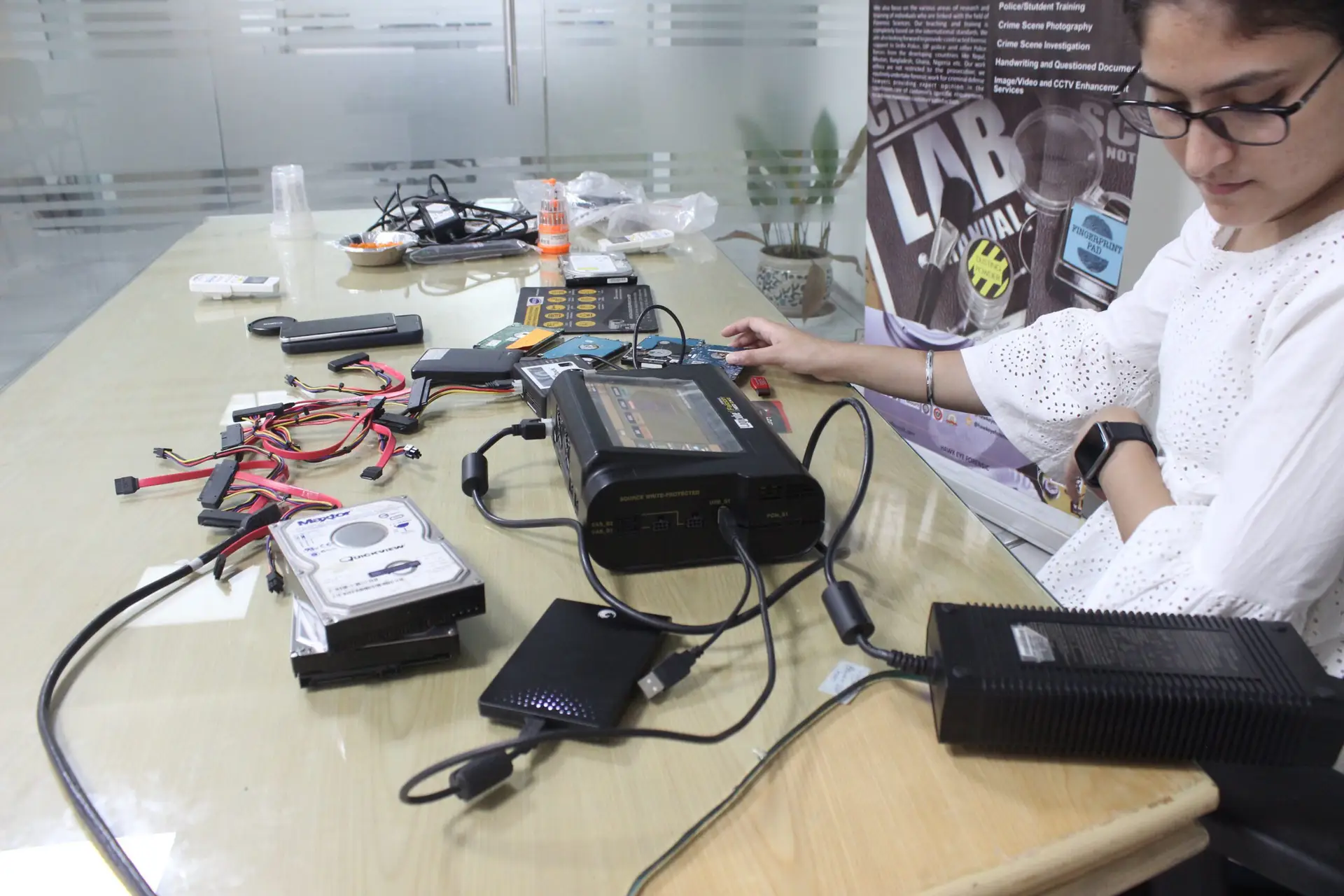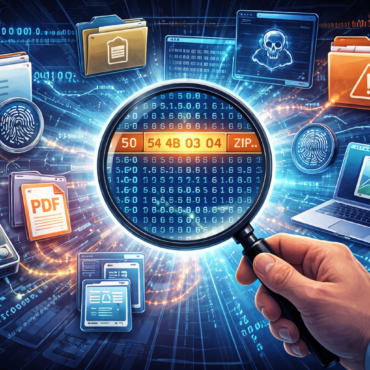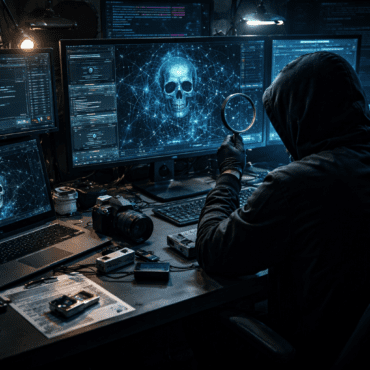Who Is a Digital Forensics Investigator?
A Digital Forensics Investigator (DFI) is a professional who specializes in identifying, preserving, analyzing, and presenting digital evidence. Their role is crucial in both criminal and corporate investigations, as they uncover digital footprints from devices, networks, and cloud environments. DFIs ensure evidence remains admissible in court while helping law enforcement, organizations, and individuals combat cybercrimes such as hacking, fraud, insider threats, and data breaches.
Process of Digital Forensics Operations
The digital forensics process follows a systematic methodology to maintain accuracy and legal validity:
-
Identification – Detect potential sources of digital evidence (computers, mobile devices, servers, IoT devices, cloud accounts).
-
Preservation – Secure devices and create forensic images to ensure original data remains intact.
-
Collection – Extract relevant data using forensic tools while maintaining a strict chain of custody.
-
Examination – Recover hidden, deleted, or encrypted data using specialized software.
-
Analysis – Correlate findings, timelines, and activities to establish facts.
-
Presentation – Prepare reports and expert testimony suitable for legal proceedings.
This structured approach ensures that digital evidence withstands legal scrutiny.
Digital Forensics Investigator Career Path
The career journey for a Digital Forensics Investigator typically progresses through these stages:
-
Entry-Level (0–2 years): Digital Forensics Technician, SOC Analyst, or IT Security Support. Focus on foundational knowledge of operating systems, networks, and forensic tools.
-
Mid-Level (3–7 years): Forensic Analyst, Incident Responder, or Cybercrime Investigator. Work on real cases, advanced forensic examinations, and reporting.
-
Senior Level (8+ years): Senior Forensic Examiner, Forensic Lab Manager, or Expert Witness. Handle high-profile cases, testify in court, and lead forensic teams.
-
Specialized Roles: Mobile Forensics Expert, Cloud Forensics Specialist, Malware Analyst, or eDiscovery Consultant.
With increasing cybercrime, skilled DFIs are in demand across law enforcement, corporate enterprises, consulting firms, and government agencies.
Top 5 Digital Forensics Certifications in 2025
Certifications validate expertise and provide a competitive edge in the job market. Here are the top five certifications for 2025:
1. Computer Hacking Forensic Investigator (CHFI)
-
Offered by: EC-Council
-
Focus: Comprehensive forensic techniques, tools, and legal aspects. Covers file systems, malware forensics, and dark web investigations.
-
Ideal For: Beginners to mid-level investigators seeking global recognition.
2. AccessData Certified Examiner (ACE)
-
Offered by: AccessData
-
Focus: Proficiency in using FTK (Forensic Toolkit) for data recovery, analysis, and reporting.
-
Ideal For: Professionals working in forensic labs with AccessData’s FTK suite.
3. Certified Forensic Computer Examiner (CFCE)
-
Offered by: International Association of Computer Investigative Specialists (IACIS)
-
Focus: In-depth knowledge of computer forensic practices, from acquisition to analysis and testimony.
-
Ideal For: Law enforcement professionals and forensic practitioners seeking credibility in court.
4. EnCase Certified Examiner (EnCE)
-
Offered by: OpenText (formerly Guidance Software)
-
Focus: Expertise in EnCase, one of the most widely used forensic software tools worldwide.
-
Ideal For: Forensic examiners handling large-scale enterprise investigations.
5. GIAC Certified Forensic Analyst (GCFA)
-
Offered by: Global Information Assurance Certification (GIAC)
-
Focus: Advanced forensics and incident response, including memory, network, and intrusion analysis.
-
Ideal For: Senior investigators and incident responders dealing with complex attacks.
Frequently Asked Questions
Q1: Is digital forensics a good career in 2025?
Yes, the rise of cybercrime and global data protection regulations ensure strong demand for skilled forensic professionals.
Q2: Do I need programming skills to become a Digital Forensics Investigator?
Not mandatory, but knowledge of scripting (Python, PowerShell) can significantly enhance forensic analysis capabilities.
Q3: Which industries hire digital forensic investigators?
Law enforcement, corporate security teams, consulting firms, government agencies, financial institutions, and cybersecurity companies.
Q4: What is the average salary of a Digital Forensics Investigator?
In 2025, salaries range from ₹6–12 LPA in India and $75,000–$120,000 annually in the US, depending on expertise and location.
Q5: Which certification should I start with?
CHFI is widely recommended for beginners, while CFCE and GCFA are best for those pursuing advanced expertise.
Conclusion
A career in digital forensics is both challenging and rewarding. With cybercrime becoming more sophisticated in 2025, organizations need trained investigators to protect data, solve cases, and provide justice. Pursuing certifications like CHFI, ACE, CFCE, EnCE, and GCFA can open doors to global career opportunities and establish credibility in this highly specialized field.





Post comments (0)